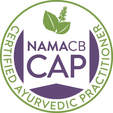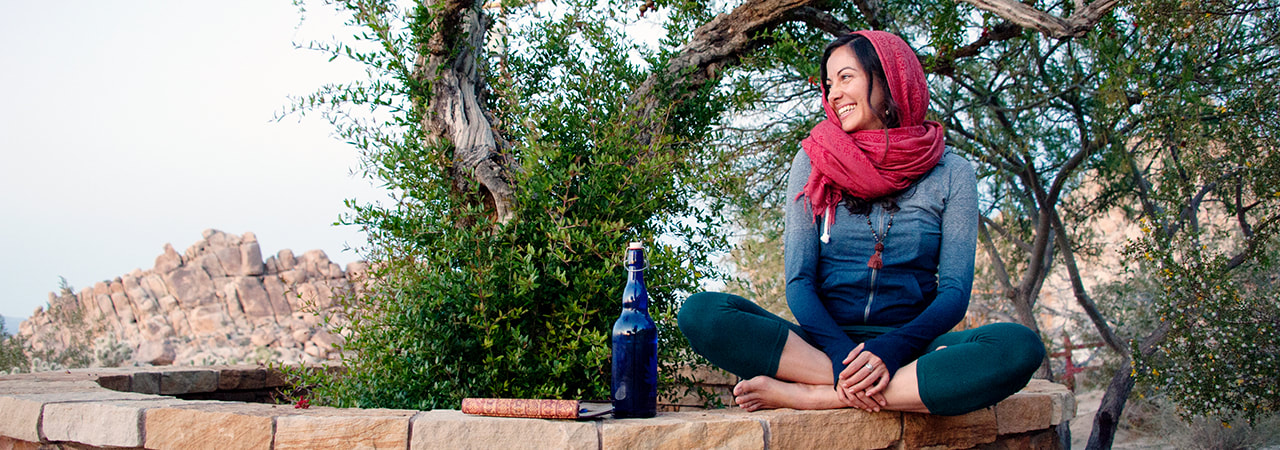 Where I live, summer is long, hot and humid and often has long periods of drought. It heats up in the middle of May and finally cools down at the end of September with most days in 90’s and even the 100’s. So summer here is definitely pitta season, as pitta is fire and water, and is hot, sharp, oily, liquid and intense. Everyone experiences summer in a different way. If you have a fiery constitution, you might dread the heat and humidity of summer and dream of spending time in a cooler climate. If you are someone who feels chilled all year round, you might relish the heat of summer. Either way, we all benefit from making adjustments to our diet and lifestyle along with the flow of the seasons.
Ayurveda says that like increases like and opposites balance which is why summer can increase those cranky feelings in a pitta person, and soothe the coldness in a vata person. Overall, the intense heat of summer drains the energy in everyone.
1 Comment
Have you ever felt more irritable in the summer, had dry skin in the autumn, feel heavier in the winter, or have sniffles in the spring? The change of seasons in particular can upset our balance and bring with it uncomfortable symptoms. Following a seasonal routine can help us adapt to the changing environment and this self knowledge of self care puts our health and well being into our own hands.
Plus Tips for a Successful Seasonal Detox Now is a great time to consider doing a simple Fall Cleanse. A cleanse is an easy way to buffer your health and protect your well-being for the coming months and beyond.
Fasting is the greatest remedy - the physician within" - Philippus Paracelsus
There is a so much contradictory information available about fasting that it can be difficult to decide which, if any, method to try. What may be good for one person can actually be detrimental to another. Fortunately, because Ayurveda recognizes the uniqueness of each individual, there are tools we can use to help us choose what will be most beneficial for us at any given time. Ayurveda has a long tradition of utilizing fasting from food as a vital practice for maintaining and regaining health. In our society, fasting is often viewed as a type of denial or deprivation, but you can instead choose to see fasting as a gift to yourself: a much needed rest from the constant barrage of foods and experiences you take into your body. Welcome to the Ayurvedic approach to fasting.
Banyan has a very nice dosha quiz. You can get a decent idea of your constitution or imbalance. You will get a more accurate reading if you have a consultation.
Winter up here in the northern hemisphere tends to be cloudy, dark, damp and cold (kapha) and sometimes cold, windy and dry (vata). Ayurveda teaches us that like increases like and that opposites balance, so by adjusting our daily routine and diet we can help ward off common problems that might occur when the weather outside is frightful. An increase of kapha in us might lead to kapha problems like colds, coughs, sinus congestion, weight gain, depression and feeling slow and sluggish. Vata imbalances that we might experience are dry skin, chapped lips, constipation, muscle aches and spasms, spaciness, anxiety and insomnia. So I would like to give you some suggestions on what to do to help keep yourself healthy this winter.
|
Affiliate LinksSome of the links provided are affiliate links, which cost you nothing, but pay me a small commission to help support my little blog. Disclaimer
I am certified as an Ayurvedic Practitioner. I am not a medical doctor nor a dietitian, and I do not diagnose, treat or cure disease. My articles are not a substitute for medical advice. It is always recommended that clients work with their physicians for routine medical care and treatment of illness. Check with your doctor before taking herbs or using essential oils, especially when pregnant or nursing.
Please read my full Disclaimer. Archives
September 2021
|

Contact: [email protected] [email protected] 918-457-9315
© 2021 Balanced Life Ayurveda, LLC All Rights Reserved
Disclaimer




 RSS Feed
RSS Feed